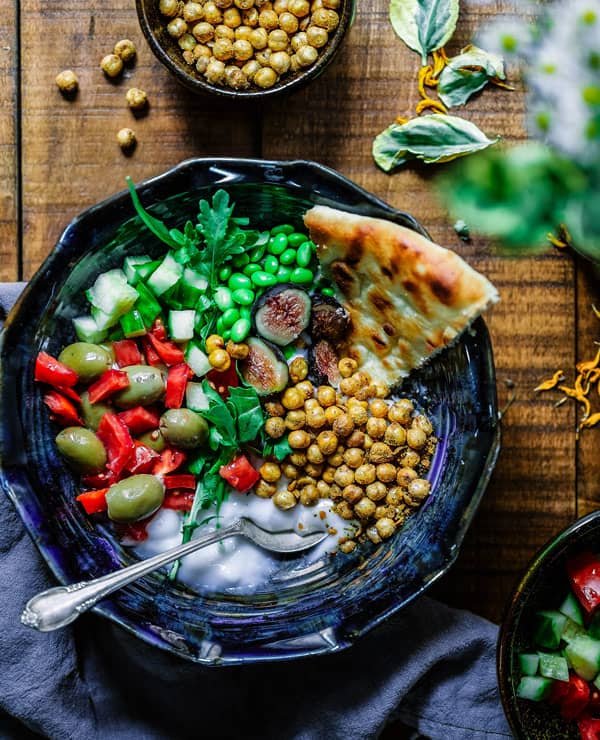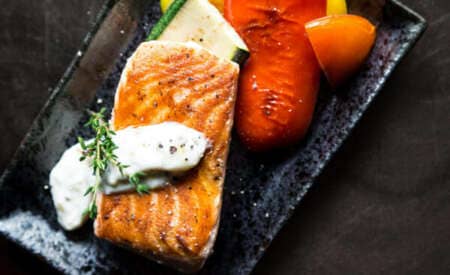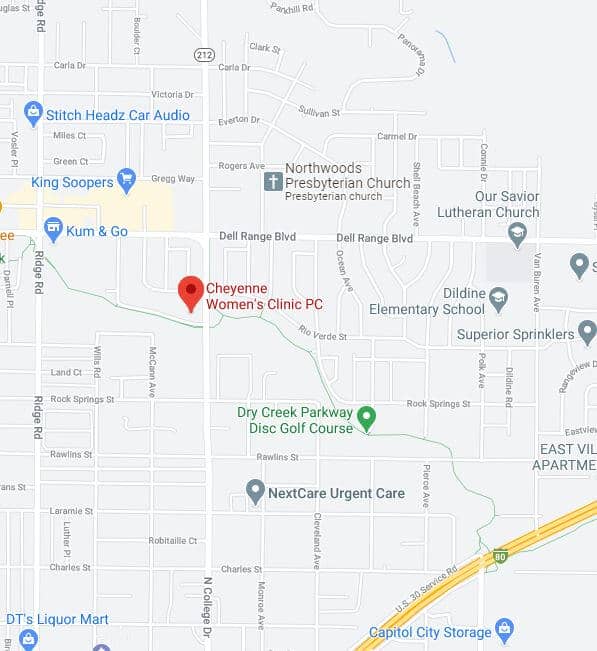Foods to Eat and Avoid During Pregnancy
The best way to learn which foods you should eat during pregnancy and how much is to create a custom My Plate Plan at choosemyplate.gov.
The program will tell you how many calories you should consume during each trimester based on your height, weight, and activity level, and give you a breakdown of how much of each of the main food groups to eat to get those calories.
Food Groups
The five main food groups are:
- Grains – include bread, pasta, oatmeal, cereal, and tortillas
- Fruits – include fresh, canned, frozen, or dried, and 100% fruit juice
- Vegetables – include raw, cooked, frozen, canned, or dried, and 100% vegetable juice
- Protein foods – include meat, poultry, seafood, beans and peas, eggs, processed soy products, nuts, and seeds
- Dairy – includes milk and products made from milk, such as cheese, yogurt, and ice cream
Oils and fats are not included in a food group, but they provide important nutrients. They give you energy, plus they help to build your baby’s organs and the placenta. Most oils and fats in your diet should come from plant sources rather than animal sources.
Vitamins and Nutrients
A well-rounded diet following the My Plate guidelines should help you get most of the vitamins and minerals you need to stay healthy and help ensure your baby is healthy. Your provider will also recommend a prenatal vitamin supplement to help you get the extra folic acid and iron your body needs when you are pregnant.
Important nutrients to make sure you are getting enough of during pregnancy include:


- Folic Acid (Folate) – This B vitamin helps to prevent major birth defects of your baby’s brain and spine. It’s hard to get the recommended amount from food, so if you are pregnant or planning to become pregnant, you should take a prenatal supplement that contains at least 600 micrograms of folic acid.
- Iron – Extra iron helps your body make more blood to supply your baby with oxygen. The daily recommended amount of 27 mg for pregnant women is included in most prenatal vitamin supplements, but you can also get iron from lean red meat, poultry, fish, dried beans and peas, and iron-fortified cereals. Your body absorbs iron better if you combine iron-rich foods with those high in vitamin C, such as citrus fruits and tomatoes.
- Calcium – This mineral is important to build your baby’s bones and teeth. The best sources are from dairy products, broccoli, sardines, and dark, leafy greens. You can also take a calcium supplement to ensure you are getting enough, which is 1,000 mg a day.
- Vitamin D – This vitamin works with calcium to help build your baby’s bones and teeth, and it is also important for healthy skin and eyesight. You can get vitamin D through fortified milk and fatty fish such as salmon. Exposure to sunlight for 10-30 minutes a few days a week will also convert a chemical in your skin to vitamin D to give you the recommended amount, which is 600 IU daily.
- Omega-3 fatty acids – This is a type of fat found in many kinds of fish, such as shrimp, salmon, catfish, and pollock, that may be important for your baby’s brain development before and after birth. Eat at least two servings a week before getting pregnant, while you are pregnant, and while you are breastfeeding to get the most benefit for your baby.
What to Avoid During Pregnancy
- Being overweight – Excess weight can lead to an increased risk of pregnancy problems, such as gestational diabetes, high blood pressure, preeclampsia, and others. If you were a normal weight before becoming pregnant, you should gain 25-35 pounds during your pregnancy. If you were overweight before, gain less weight. If you were underweight before, gain more.
- Alcohol – There is no safe amount or type of alcohol when you are pregnant.
- Caffeine – Studies on the effects of caffeine are mixed, but most experts agree that up to 200 mg a day is safe. We recommend you limit your caffeine to one soda or an 8-oz cup of coffee per day.
- Fish high in mercury – Some types of fish have higher levels of mercury than others, and mercury has been linked to birth defects. Do not eat shark, king mackerel, marin, orange roughy, or tilefish while you are pregnant. Limit albacore (white) tuna or tuna steaks to 6 ounces per week.
- Foods that could harbor listeria bacteria – Listeria bacteria causes listeriosis, a food-borne illness that can lead to miscarriage, stillbirth, and premature delivery. To help prevent it, avoid these foods:
- Unpasteurized milk and food made with unpasteurized milk
- Hot dogs, lunch meats, and cold cuts unless they are heated until steaming hot just before serving
- Refrigerated pate and meat spreads
- Refrigerated smoked seafood
- Raw and undercooked seafood, eggs, and meat
If you have any questions about what to eat or what to avoid while you are pregnant, ask your doctor.







